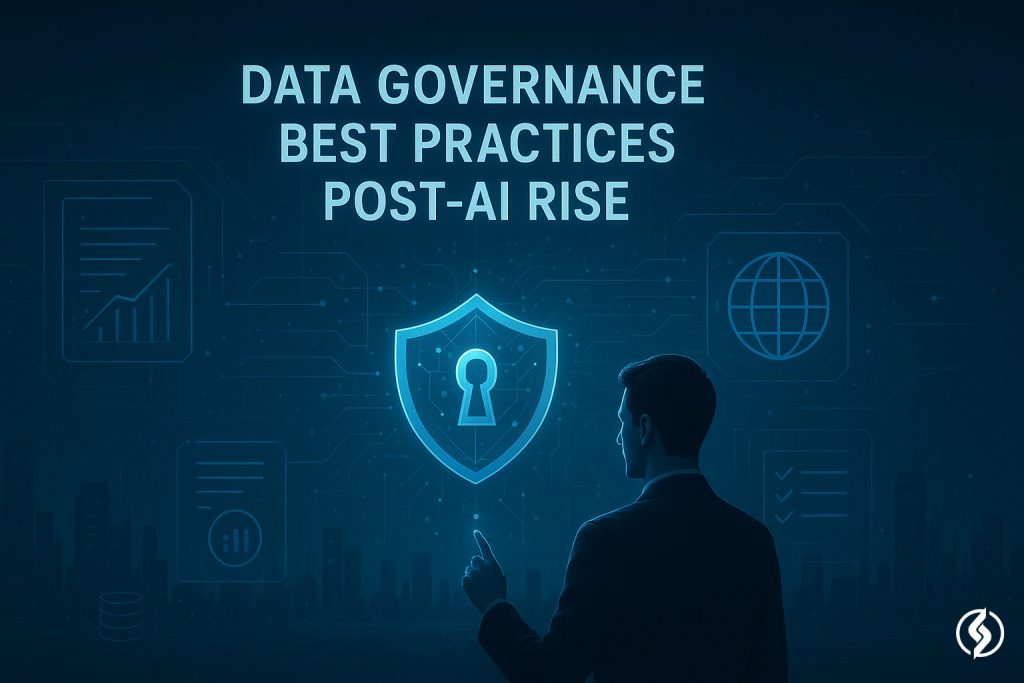Like any other thing that has been positively affected by artificial intelligence, CRM has had a positive impact. Tools like Salesforce Einstein GPT, Agentforce, and Data Cloud now enable organizations to deliver hyper-personalized experiences at scale. Yet with this innovation comes greater responsibility. As CRMs integrate larger volumes of customer data, the risk of data misuse grows. Regulatory frameworks such as GDPR, HIPAA, CCPA, and the upcoming EU AI Act highlight the urgency of adopting privacy-first approaches. Trust, Salesforce’s number one value, must guide the way forward.
Why CRM Privacy Matters More in the AI Era?
Despite the fear surrounding the data in the CRM, companies are increasingly adopting the AI-powered CRMs. They analyze behaviors, predict trends, and personalize experiences. However, this reliance brings several risks:
- Explosion of Data: Consumer behavior has changed over a period, and the omni-channel access just means more data to draw a conclusion. The companies are in dire need of a CRM privacy platform that can integrate data from all channels and bring in results to focus on the framework ahead.
- AI Risks: Generative AI can amplify bias or create outputs without clear accountability. If the bias is embedded in the model, it can give you skewed results that may take your growth in a negative direction. With data privacy in the CRM sector, keeping your growth safe is a better possibility.
- Customer Expectations: According to Salesforce’s State of the Connected Customer report (2023), 79% of customers say trust in data practices influences their buying decisions. So, when you quote that a certain product or service has had better results than competitors, it will be followed by data from the CRM, and consumers tend to build trust around such studies.
Core Principles of CRM Data Governance
- Transparency: Clearly communicate what data is collected, why, and how it will be used. It is very important to use the consumer data responsibly. State the terms of use of the data to the consumer so that they can make an informed choice.
- Consent Management: Honor customer preferences with auditable records of opt-ins and opt-outs. Companies have been known to use the data in the past without the actual consent of the consumer. In such cases, the consumer is well within their right to report the use of their personal details.
- Data Minimization: Collect only the data required for legitimate business purposes. There is no need to collect data for accessing the buying behavior of the consumers at large, as the integrated CRM models with AI can already do that for you.
- Accuracy & Integrity: Regularly clean and validate data to maintain reliability. Most of the automated systems can verify the data for you and clean it to ensure that only relevant and recent information is available.
- Security & Protection: Encrypt sensitive information, enforce access controls, and apply zero-trust models. It is your duty to ensure that sensitive data is protected, especially in the finance and healthcare sectors.
Best Practices for Privacy-First CRM in the AI Era
Establish Clear Data Ownership & Stewardship
Define roles for data owners and stewards, and create governance councils that align business and IT priorities.
Classify & Protect Sensitive Data
Identify PII, PHI, and financial data. Apply field-level security and leverage Salesforce Shield encryption for maximum protection.
Implement Consent & Preference Management
Use Salesforce’s Consent API to manage permissions, opt-ins, and the right-to-be-forgotten. Adjust for region-specific rules.
Build AI Governance Guardrails
Use explainability dashboards for Einstein GPT. Log AI-driven decisions for audits and follow Salesforce’s Responsible AI Principles: accuracy, safety, transparency, empowerment, and sustainability.
Monitor & Audit Continuously
Automate event monitoring and perform regular reviews to ensure ongoing compliance with evolving laws.
Industry-Specific Governance Considerations
- Healthcare: Adhere to HIPAA, encrypt PHI, and maintain audit trails for patient records.
- Financial Services: Meet FINRA, SEC, and AML obligations with robust reporting and KYC management.
- Nonprofit: Protect donor data, track consent for fundraising analytics, and apply ethical standards.
- Retail: Manage loyalty program data responsibly, track consumer preferences, and secure payment details.
Conclusion
As CRMs evolve into AI-powered platforms, organizations face new challenges in balancing personalization with privacy. A privacy-first approach rooted in strong governance ensures compliance, builds customer trust, and safeguards reputations. Salesforce provides the tools, but it’s strategy and execution that make them effective.
Sarla Consulting helps organizations implement robust Salesforce data governance frameworks, ensuring CRMs are secure, compliant, and ready for the AI era.
Partner with us today to future-proof your data governance strategy and put trust at the center of your customer relationships.

